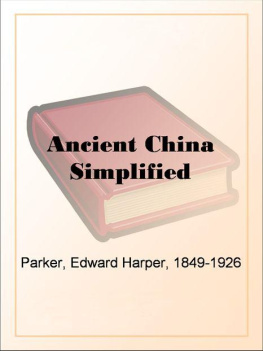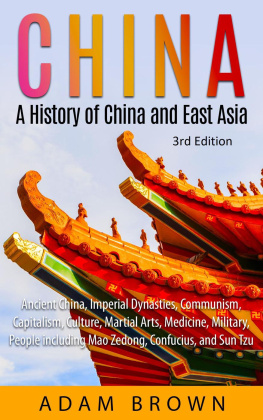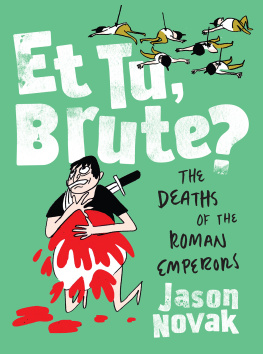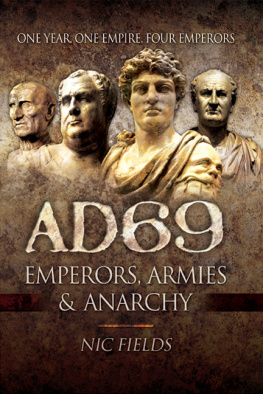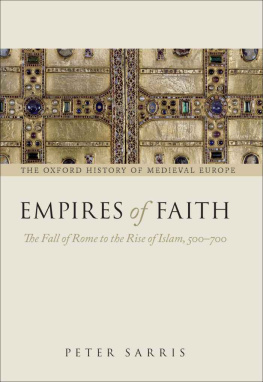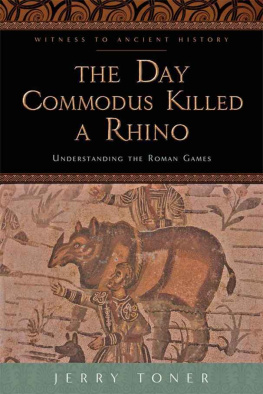Produced by Steve Schulze, Charles Franks and the Online Distributed Proofreading Team.Page images courtesy of Case Western Reserve University Library - Preservation Department
ANCIENT CHINA SIMPLIFIED
[Illustration: Tripod of the Chou dynasty, date 812 B.C. In 1565 A.D. it was placed by the owner for safety in a temple on Silver Island (near Chinkiang), where it may be seen now. Taken (by kind permission of the author) from Dr. S. W. Bushell's "Chinese Art," vol. i. p. 82.]
ANCIENT CHINA SIMPLIFIED
BY EDWARD HARPER PARKER, M.A., (Manc.)
PROFESSOR OF CHINESE AT THE VICTORIA UNIVERSITY OF MANCHESTER
LONDON
PREFACE
Boswell once remarked to Dr. Johnson that "the history of England is so strange that, if it were not well vouched as it is, it would be hardly credible." To which Johnson replied in his usual style: "Sir, if it were told as shortly, and with as little preparation for introducing the different events, as the history of the Jewish kings, it would be equally liable to objections of improbability." Dr. Johnson went on to illustrate what he meant, by specific allusion to the concessions to Parliament made by Charles I. "If," he said, "these had been related nakedly, without any detail of the circumstances which generally led to them, they would not have been believed."
This is exactly the position of ancient Chinese history, which may be roughly said to coincide in time with the history of the Jewish kings. The Chinese Annals are mere diaries of events, isolated facts being tumbled together in order of date, without any regard for proportion. Epoch-making invasions, defeats, and cessions of territory are laconically noted down on a level with the prince's indiscretion in weeping for a concubine as he would weep for a wife; or the Emperor's bounty in sending a dish of sacrificial meat to a vassal power by express messenger. In one way there is a distinct advantage in this method, for, the historian being seldom tempted to obtrude his own opinion or comments, we are left a clear course for the formation of our own judgments upon the facts given. On the other hand, it is unfortunate that what may be called the philosophy of history has never been seized by the Chinese mind: the annalists do not trouble themselves with the rights and aspirations of the masses; the results to general policy that naturally follow upon increase of population, perfecting of arms and munitions of war, admixture of foreign blood with the body politic, and such like matters. The heads of events being noted, it seems to be left to the reader to fill in the details from his imagination, and from his knowledge of contemporary affairs. For instance, suppose the reign of Queen Victoria were to begin after this fashion:--"1837, 5th moon, Kalends, Victoria succeeded: 9th moon, Ides, Napoleon paid a visit: 28th day, London flooded; 10th moon, 29th day, eclipse of the sun"; and so on. At the time, and for many years--possibly centuries--afterwards, there would be accurate general traditional, or even written, information as to who Victoria was; why Napoleon paid a visit; in what particular way the flood affected England generally; from what parts the eclipse was best visible, etc. These details would fade in distinctness with each successive generation; commentators would come to the rescue; then commentators upon commentators; and discussions as to which man was the most trustworthy of them all.
Under these circumstances it is difficult enough for the Chinese themselves to construct a series of historical lessons, adequate to guide them in the conduct of modern affairs, out of so heterogeneous a mass of material. This difficulty is, in the case of Westerners, more than doubled by the strange, and to us inharmonious, sounds of Chinese proper names: moreover, as they are monosyllabical, and many of them exactly similar when expressed in our letters, it is almost impossible to remember them, and to distinguish one from the other. Thus most persons who make an honest endeavour by means of translations to master the leading events in ancient Chinese history soon throw down the book in despair; while even specialists, who may wish to shorten their labours by availing themselves of others' work, can only get a firm grip of translations by comparing them with the originals: it is thus really impossible to acquire anything at all approaching an accurate understanding of Chinese antiquity without possessing in some degree the controlling power of a knowledge of the pictographs.
It is in view of all these difficulties that an attempt has been made in this book to extract principles from isolated facts; to avoid, so far as is possible, the use of Chinese proper names; to introduce these as sparingly and gradually as is practicable when they must be used at all; to describe the general trend of events and life of the people rather than the personal acts of rulers and great officers; and, generally, to put it into the power of any one who can only read English, to gain an intelligible notion of what Chinese antiquity really was; and what principles and motives, declared or tacit, underlay it. It is with this object before me that I have ventured to call my humble work "Ancient China Simplified," and I can only express a hope that it will really be found intelligible.
EDWARD HARPER PARKER.
18, GAMBIER TERRACE, LIVERPOOL, May 18, 1908.
AIDS TO MEMORY
There is much repetition in the book, the same facts being presented, for instance, under the heads of Army, Religion, Confucius, and Marriages. This is intentional, and the object is to keep in the mind impressions which in a strange, ancient, and obscure subject are apt to disappear after perusal of only one or two casual statements.
The Index has been carefully prepared so that any allusion or statement vaguely retained in the mind may at once be confirmed.
The chapter headings, or contents list, which itself contains nearly five per cent of the whole letterpress, is so arranged that it omits no feature treated of in the main text.
In the earlier chapters uncouth proper names are reduced to a minimum, but the Index refers by name to specific places and persons only generally mentioned in the earlier pages. For instance, the states of Lu and CHENG on pages 22 and 29: it is hard enough to differentiate Ts'i, Tsin, Ts'in, and Ts'u at the outstart, without crowding the memory with fresh names until the necessity for it absolutely arises.
The nine maps are inserted where they are most likely to be useful: it is a good plan to refer to a map each time a place is mentioned, unless the memory suffices to suggest exactly where that place is. After two or three patient references, situations of places will take better root in the mind.
The chapters are split up into short discussions and descriptions, because longer divisions are apt to be tedious where ancient history is concerned. And the narrative of political movement is frequently interrupted by the introduction of new matter, in order to provide novelty and stimulate the imagination. Moreover, all chapters and all subjects converge on one general focus.
On page 15 of "China, her Diplomacy, etc." (John Murray, 1901), I have confessed how tedious I myself had found ancient Chinese history, and how its human interest only begins with foreign relations. I have, however, gone systematically through the mill once more, and my present object is to present general results only obtainable at the cost of laboriously picking out and resetting isolated and often apparently unconnected records of fact.
NAMES OF CHIEF LOCALITIES
CHOU: at first a principality in South Shen Si and part of Kan Suh, subject to Shang dynasty; afterwards the imperial dynasty itself.
TS'lN: principality west of the above. When the Chou dynasty moved its capital east into Ho Nan, Ts'in took possession of the old Chou principality.
Next page
